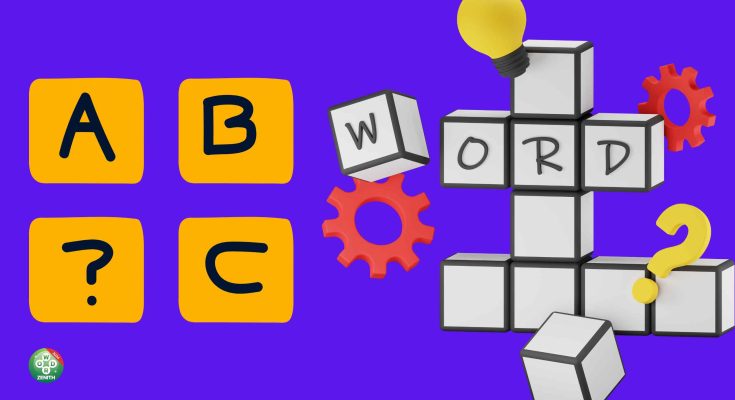In our constantly connected, fast-paced world, it’s more important than ever to take time to slow down and be present. That’s where the practice of mindfulness comes in – the intentional act of focusing your awareness on the here and now. And you know what’s a wonderfully mindful and relaxing activity? Playing word games!
Word games provide the perfect blend of mental engagement and lighthearted fun. They allow you to get pleasantly absorbed in the moment, turning your attention inward as you ponder letters, definitions, and linguistic patterns. With word games, you can’t be distracted by notifications or sucked into doomscrolling. It’s just you and the delightful puzzles laid out before you.
So grab a pencil, a word search book, or your favorite word game app, and let’s explore how tackling word puzzles can benefit your mindfulness practice and provide a sense of calm relaxation.
The Focusing Power of Word Games
At their core, word games require you to concentrate. Whether you’re trying to decipher a tricky crossword clue, unscramble some jumbled letters, or find hidden words in a word search grid, you have to bring your full attention to the task at hand. This laser-like focus is the essence of mindfulness.
As you zero in on the letters, definitions, and patterns before you, the rest of the world fades away. You aren’t thinking about that daunting work project or getting caught up in anxious “what if” thoughts. Your mind isn’t spinning out into the future or dwelling on the past. You’re simply present, utterly absorbed in the word game.
This state of awareness and concentration provides a respite from the mental chatter that so often plagues us. Playing word games allows you to experience the calming clarity that comes from being fully grounded in the current moment. With consistent practice, this mindful presence can become easier to tap into in other areas of your life.
The Meditative Quality of Words
Words themselves have an almost meditative power. By contemplating the very building blocks of language, you can drop into a profoundly conscious state. As you slowly letter out words letter by letter, mouthing their shapes and sounds, you’re naturally induced into a more relaxed frame of mind.
The simple act of lingering over words and considering their nuanced meanings can shift you into a more reflective, mindful gear. You may find yourself appreciating the inherent beauty and significance of our linguistic tools in a way you ordinarily don’t. From crossword clues to jumbles to new vocabulary words, deeply engaging with language brings a sense of presence.
Words are intricately woven into the fabric of our thinking, shaping how we contextualize and label every aspect of our experience. When you allow yourself to really soak in words during gameplay, you’re connecting to your own consciousness in a very grounding way.
The Mood-Boosting Benefits
In addition to enhancing your mindfulness, regularly playing word games can provide a supplemental dose of calm relaxation and mood-boosting effects. For starters, word games can give you a pleasant sense of accomplishment as you successfully solve puzzles and clear levels. That inherent feeling of productivity has a positive psychological impact.
Moreover, wordsmiths and puzzle lovers may experience that delightful “aha!” moment when a solution they’ve been mulling over finally clicks into place. These “aha!” moments release a gratifying hit of dopamine, your brain’s reward chemical, providing a little burst of joy amid the challenges.
Completing word-based puzzles also activates areas of the brain involved in learning and memory formation. This mental workout can boost neuroplasticity and has been linked to reduced cognitive decline. Keeping your brain engaged and flexible is empowering, helping you cultivate a sense of intellectual confidence.
Perhaps most importantly, word games tend to be built upon a foundation of playfulness and curiosity, two wonderful antidotes to the stresses of daily life. By bringing a lighthearted spirit of fun to your puzzles, you tap into an almost childlike sense of wonder. Laughter, creativity, and intellectual stimulation blend together, relaxing your mind and elevating your mood.
Building a Mindful Word Game Practice
Ready to start experiencing the joyful, grounding benefits of word games for yourself? Here are some tips for integrating this mindful hobby into your life:
Designate Game Time
Whether it’s once a day or a few times per week, pick a recurring window when you’ll set aside all other distractions to focus entirely on your word puzzles. Treat this as a cherished self-care ritual, establishing it as a can’t-miss appointment on your calendar. Find a cozy spot, grab a warm beverage, and lose yourself in the world of words.
Pace Yourself
Don’t try to blaze through puzzles or rush for solutions. The game becomes less meditative if you’re focused on speed over presence. Work at your own thoughtful pace, embracing any moments of uncertainty as opportunities to breathe deeply and linger over the clues.
Protect Your Practice
If you find your mind wandering away from your puzzle or if you notice yourself starting to feel frustrated, take it as a sign to pause. Let go of the need to “win” for a few moments. Re-center your attention on the simple pleasures of playing with words, and only resume once you feel your mindfulness return.
Keep It Fresh
While you may have go-to favorites, mix up your word game choices regularly. Jiggling your neural pathways by tackling new linguistic challenges will keep things engaging. Explore word searches, crosswords, anagrams, definitions, rhyming games, and other varieties to keep your practice playful and fun.
Read more: Why Mobile Gaming is a Better Option than Console Gaming
Make It Social (Sometimes)
Most of the time, your word game ritual will be a solitary feast for the senses. But you can also build community by occasionally sharing the joy with others. Invite a friend or two over for a low-key word game night, collaborating and basking in one another’s company. Just be sure to maintain a relaxed, no-pressure vibe focused on mindfulness over competition.
As you forge your own unique word game habit, really lean into the sheer delightfulness of language. Building your “wordku” in this conscious way can help you find respites of calm even amid the busiest of days. Games that keep your mind light, curious, and ever-so-engaged are precious gateways to joyful presence.
Whether you’re up late at night with a puzzle book and a pen or stealing mindful moments on a daily word game app, allow yourself to revel in the textures and patterns of vocabulary. Let the letters draw you inward and outward all at once. When words and mindfulness intertwine, beautiful new grooves are etched into the landscape of your awareness.




